Amitabh Bachchan
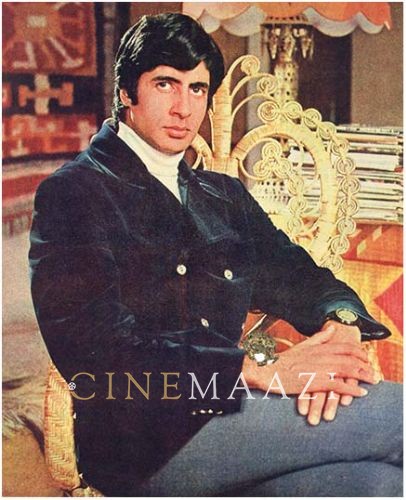
Subscribe to read full article
This section is for paid subscribers only. Our subscription is only $37/- for one full year.
You get unlimited access to all paid section and features on the website with this subscription.
Not ready for a full subscription?
You can access this article for $2 , and have it saved to your account for one year.
- Born: 11 October 1942 (Allahabad, UP)
- Primary Cinema: Hindi
- Parents: Teji Suri and Harivansh Rai Bachchan
- Children: Shweta Bachchan, Abhishek Bachchan
The essence of Amitabh Bachchan, acknowledged as the single most popular star in the history of Indian cinema, possibly lies in this anecdote shared by the superstar’s son, actor Abhishek Bachchan in 2012. The latter revealed that one day he asked his father how it felt to see the large crowds religiously turning up every week, over so many years, at the gate of their residence to see him. A day later, Bachchan senior replied, ‘The only thought that’s going through my head is – Do you think they’ll come next Sunday?’ His response, points out Abhishek, “teaches you that even at this position you cannot be complacent. You cannot take it for granted. He’s the Amitabh Bachchan. There is not a bigger star and better actor than him in the world. His attitude is like I got to work hard because these guys have to come back.”
Marking his first onscreen success with Zanjeer (1973), the deep baritoned Bachchan with the charismatic screen presence had already become a cultural phenomenon by the end of the 1970s. Dubbed ‘The One-Man Industry’, by 1984, he had starred in 40% of Hindi cinema’s 15 biggest hits. Known primarily for his roles in action films at the peak of his popularity, his astounding range would soon become evident, including his flair for singing, dancing, and comedy. In a career overflowing with high notes, his notable films include Deewaar (1975), Sholay (1975), Amar Akbar Anthony (1977), Don (1978), Satte Pe Satta (1982), Agneepath (1990), Aankhen (2002), Black (2005), Sarkar (2005), Paa (2009), Piku (2015), Pink (2016), and Brahmastra: Part One Shiva (2022), among others. His astonishing range of memorable characters includes an aging teacher of a deaf-blind girl in Black, a ghost in Bhoothnath (2008), an avenging superhero in Shahenshah (1988), a 13-year-old affected by Progeria in Paa (2009), a grumpy father experiencing chronic constipation in Piku (2015), and a retired lawyer with bipolar disorder in Pink, to name a few. Diffident about the copious praise that flows his way, he has maintained, “I do not work towards an image. Neither do I follow an image nor do I believe in it. These are wonderful little epithets that are made by the media for whatever reasons and their own convenience. I believe I am an artist and should be given as many diverse roles as possible and it should be my duty to play them to the best of my abilities. I hope that I never have to deliberately work in a film because it is going to enhance an image which is the concept of the media or anybody else.” Acknowledged as a master of reinvention, the many milestones in his career of over five decades have earned him consistent popularity and fans across all generations. After a brief stint in politics in the mid-1980s, he went on to host the television game show Kaun Banega Crorepati, the Indian version of the US and UK hit Who Wants to Be a Millionaire, gaining a whole new generation of fans. The once- ‘Angry Young Man’ of the silver screen, is now the ‘Grand Old Man’ of the Hindi film industry, with his relevance and star value intact. Awards he has won include four National film awards in the best actor category, 16 Filmfare awards, and several awards at international film festivals and award ceremonies. He has also been decorated with the Padma Shri, Padma Bhushan, Padma Vibhushan, the Dadasaheb Phalke award for his contribution to the arts, and the government of France’s highest civilian honour, Knight of the Legion of honour for his exceptional career in the world of cinema and beyond.
Born on 11 October 1942 in erstwhile Allahabad, his mother was social activist Teji Suri and his father, Hindi poet Harivansh Rai Bachchan, who was also fluent in Awadhi and Urdu. His younger brother Ajitabh is five years younger than him. To be initially named Inquilaab (revolution), inspired by the popular phrase Inquilab Zindabad used during the period of India’s struggle for independence, he was eventually named Amitabh (enduring light) on the suggestion of the poet Sumitranandan Pant, a friend of his father’s. In opposition of the caste system, his father had also shunned their original surname Shrivastava, to adopt the pseudonym Bachchan, meaning child-like in colloquial Hindi, for himself and his family. Schooled at Boys' High School & College in Allahabad and Sherwood College in Nainital, his acting skills were seen fairly early, when he won the Kendall Cup for best actor in 1957, at age 15, playing the mayor in Gogol’s play The Government Inspector. Attending Kirori Mal College at the University of Delhi in Delhi, from where he graduated with a bachelor’s degree in Science in 1962, he had also joined its theatre society, The Players. Later, applying for a role as a newsreader for All India Radio, Delhi, young Amitabh did not clear the audition, and went on to become an executive for Bird & Company, Calcutta instead.
His acting dream endured and he would debut as a voice narrator in 1969 in Mrinal Sen’s National award-winning film Bhuvan Shome. Learning through a friend of his brother Ajitabh Bachchan, that filmmaker Khwaja Ahmad Abbas was looking for a new face for his film, he was selected for the part and made his acting debut in Saat Hindustani (1969). One of the seven protagonists in the film which also featured Utpal Dutt, Anwar Ali, Madhu and Jalal Agha, he played a Muslim poet who joins the nationalists to liberate Goa from Portuguese rule. It earned him his first National award, as best newcomer.
In his very next outing – Hrishikesh Mukherjee’s critically appreciated and commercially successful Anand (1971), he made an impact as a cynical doctor who is the best friend of a terminally ill man who wishes to live life to the fullest before the end comes. Starring alongside the superstar of the time, Rajesh Khanna, who won the Filmfare best actor award for his performance as Anand, Bachchan earned himself the Filmfare best supporting actor award for his subtle and underplayed performance as Dr Bhaskar Banerjee.
Essaying his first antagonist role as an infatuated lover-turned-murderer in Parwana (1971), he went on to feature in films such as Reshma Aur Shera (1971), Bombay to Goa (1972), and Sanjog (1972). His difficult and dry spell of 13 consecutive flops at the box office was to end with the Prakash Mehra directorial Zanjeer (1973). Noticed by scriptwriter duo Salim-Javed, he was cast by Mehra for the angry young man character in the film, which had been turned down by many actors for radically going against the romantic norm of the time. The action crime drama saw him essay a tough and honest police officer who clashes with a crime boss, who also turns out to be his parents’ murderer. His performance won him the Filmfare best actor award in a film that not only became a blockbusting hit but also rewrote the trajectory of the Hindi film hero, as well as of Hindi cinema by injecting a new note of violence and aggression. The action drama signified the advent of the ‘angry young man’ in Indian cinema, who gave voice to the angst of the age and heralded the rebellious spirit of its youth. Bachchan’s performance came to be regarded as one of the most iconic in Hindi film history. Zanjeer inaugurated the Bachchan reign.
Post-Zanjeer, Bachchan became the actor of choice for hit scriptwriters Salim and Javed, who penned many of their subsequent scripts with him in mind, establishing the persona of the angry young man in Hindi cinema. In subsequent films such as Deewaar (1975), Sholay (1975), Trishul (1978), Kaala Patthar (1979) and Shakti (1982), he would portray the wronged hero in conflict with a corrupt system, and a victim of circumstance. It found resonance especially among the youth, who were experiencing disillusionment with the system and its ills such as poverty, social inequality, hunger, unemployment, and corruption. Bachchan thus became synonymous with the angst, rage, frustration, rebellion and anti-establishment sentiment of 1970s young India.
The year 1975 saw him enter the realm of superstardom. The year brought forth a season of plenty; he would star in a variety of film genres, from the comedy Chupke Chupke and the crime drama Faraar to the romantic drama Mili, topped by two of the most important films in Hindi cinema history – Sholay and Deewar, both penned by Salim-Javed. The Yash Chopra directorial Deewaar told the story of a pair of impoverished brothers who struggle to survive in the slums of Bombay due to their father’s misplaced idealism. A deewar or wall springs up between them. In a time of socio-political turmoil, they grow apart due to fate and circumstances, finding themselves on opposing sides of the law. The film's anti-establishment themes combined with Bachchan's criminal anti-hero vigilante character resonated with audiences. It would significantly impact Indian cinema and society, cementing Bachchan's popular image as Hindi cinema’s angry young man.
Later in the year, in August, Sholay released, becoming the highest-grossing film ever in India at the time. Bachchan, along with Dharmendra, played outlaws hired by a former police officer to capture the notorious and ruthless bandit who has murdered his family. Its stunning success further reinforced Bachchan’s stardom, and he went on to consolidate his domination in the industry through the rest of the decade and the 1980s. If he impressed as a romantic hero in Yash Chopra’s Kabhi Kabhie (1976), he won his first Filmfare best actor award for the lost-and-found entertainer Amar Akbar Anthony (1977), and delivered two more hits that year - Parvarish and Khoon Pasina. In 1978, he delivered an award-winning performance as the leader of an underworld gang and his look-alike Vijay in the hit Don (1978). He followed it up with impressive performances in Yash Chopra's Trishul (1978) and Prakash Mehra's Muqaddar Ka Sikandar (1978). All of his six releases that year including Kasme Vaade, Ganga Ki Saugandh and Besharam became hits, with the former three becoming the consecutive highest-grossing films of the year.
The years that followed brought successive hits such as Suhaag (1979), Mr Natwarlal (1979) for which he used his singing voice for the first time, Kaala Patthar (1979), The Great Gambler (1979) and Manzil (1979). The next decade brought noteworthy films such as Dostana (1980), which became the highest-grossing film of the year, Shaan (1980), Ram Balram (1980), Naseeb (1981), Laawaris (1981), Kaalia (1981), Yaarana (1981), Barsaat Ki Ek Raat (1981), Shakti (1982), Satte Pe Satta (1982), Desh Premee (1982), Namak Halaal (1982), Khud-Daar (1982), Bemisal (1982), Nastik (1983) and Pukar (1983). It was followed by hits like Mard (1985) and Geraftaar (1985).
He suffered a near-fatal intestinal injury on 26 July 1982, during the filming of a fight scene with co-actor Puneet Issar for the Manmohan Desai directorial Coolie. An emergency splenectomy needed to be performed on him. As he battled for life over several months, fans and well-wishers kept vigil outside the hospital in support and prayer. Later that year, after a long period of recuperation, he resumed shooting for the film, which released in 1983 and became a top-grosser. Released with a freeze-frame of the decisive moment, the original ending of the film had reportedly been changed by Desai to ensure his character, Vijay lived.
Diagnosed with Myasthenia Gravis, Bachchan grew increasingly discontented with films and quit the industry to venture into politics, reportedly in support of long-time family friend, Rajiv Gandhi. Contesting the Allahabad seat for the 8th Lok Sabha, he won 68.2% of the votes, one of the highest victory margins ever in Indian elections. However, against the shadow of the Bofors scam, he resigned after a three-year stint in politics from 1984 to 1987, to return the following year to films. His comeback film Shahenshah (1988) found its mark at the box office; however, his releases the following year such as Jaadugar (1989), Toofan (1989) and Main Azaad Hoon (1989) bit the dust. While Aaj Ka Arjun (1990), Agneepath (1990) and Hum (1991) provided a respite, they were followed by a string of box office. He chose to go into a state of semi-retirement post the critically acclaimed Khuda Gawah (1992), accepting no offers for five full years.
In 1996, he turned producer, setting up Amitabh Bachchan Corporation, Ltd. (ABCL). The company was involved in mainstream commercial film production and distribution, audio cassettes and video discs, production and marketing of television software, and celebrity and event management. It also produced the hit film Tere Mere Sapne (1996). However, the company lost heavily due to the poor performance of its production Mrityudata (1997), starring Bachchan, as well as the 1996 Miss World beauty pageant that it sponsored. Amidst its financial and operational collapse in 1997, Bachchan had also mortgaged his bungalow Prateeksha to raise funds for his company. He would call this period one of the most difficult times of his life.
Returning to acting, he featured in films with mixed results, from successes like Bade Miyan Chote Miyan (1998) and Major Saab (1998), to flops like Lal Baadshah (1999) and Kohram (1999). Debt-ridden and desperate to revive his flagging acting career, he had reportedly approached his Juhu neighbour, filmmaker Yash Chopra for work; a part in Chopra’s son Aditya Chopra’s Mohabbatein (2000), ensued. It marked the beginning of yet another ascent, followed as it was by films like Ek Rishtaa: The Bond of Love (2001), Kabhi Khushi Kabhie Gham... (2001), and Baghban (2003). His diverse range of performances in Aks (2001), Aankhen (2002), Kaante (2002), Khakee (2004), Dev (2004) and Veer-Zaara (2004), won him critical praise, topped by Sanjay Leela Bhansali's Black (2005). More hits followed with Bunty Aur Babli (2005), in which he starred alongside his son Abhishek Bachchan, the Godfather tribute Sarkar (2005), and Kabhi Alvida Naa Kehna (2006). Baabul (2006), Ekalavya (2007) and Nishabd (2007) were unsuccessful at the box office but his performances unerringly garnered critical praise. The year also saw the release of the romantic comedy Cheeni Kum (2007) and the multi-starrer action drama Shootout at Lokhandwala (2007), both successes. He also acted in his first English-language film, the Rituparno Ghosh-directed The Last Lear (2007), which premiered at the 2007 Toronto international film festival. He powered on with Bhoothnath (2008), Sarkar Raj (2008), and the critically and commercially successful Paa (2009).
Exploring cinema across various languages, he debuted in Malayalam films with Kandahar (2010), making his Hollywood debut with The Great Gatsby (2013), and later, his Telugu debut in Sye Raa Narasimha Reddy (2019). Significant films that followed include the charming slice-of-life Piku (2015), the women-centric courtroom drama film Pink (2016), the comedy drama 102 Not Out (2018) which reunited him with Rishi Kapoor onscreen after 27 years, and Gulabo Sitabo (2020). More recent releases of his include Chehre (2021), Jhund (2022), Runway 34 (2022), Brahmāstra: Part One – Shiva (2022), Goodbye (2022) and Uunchai (2022).
Bachchan saw enormous success with his hosting of Kaun Banega Crorepati (KBC), the first season of which was telecast in 2000; apart from one season when Shah Rukh Khan hosted it. His easygoing manner and charisma helped make the show one of India’s top television programmes ever.
His deep baritone has also ensured his efficacy as a presenter for numerous programmes and a narrator for prominent films such as Satyajit Ray’s Shatranj Ke Khiladi (1977), and Ashutosh Gowarikar's Lagaan (2001). He has also rendered songs such as Mere paas aao (Mr Natwarwal, 1979), Chal mere bhai (Naseeb, 1981), Mere angne mein (Laawaris, 1981), Rang barse (Silsila, 1981), Tu maike mat jaiyo (Pukar, 1983), Main yahaan tu wahaan (Baghban, 2003), Ekla cholo re (Kahaani, 2012), and Tu chal (Pink, 2016).
Voted the "greatest star of stage or screen" in a BBC Your Millennium online poll in 1999, in October 2003, TIME magazine dubbed him "the Undisputed Godfather of Bollywood". In April 2005, The Walter Reade Theater of Lincoln Center in New York honoured him with a special tribute, a retrospective titled “Amitabh Bachchan: The Biggest Film Star in the World”. In June 2000, he became the first living Asian to have been modelled in wax at London's Madame Tussauds Wax Museum. Named on CNN's "top 25 Asian actors of all time" in 2010, he has also won "Hottest Vegetarian male" by PETA India in 2012.
Books written about Bachchan focusing on his life and career include Amitabh Bachchan: the Legend, To be or not to be: Amitabh Bachchan, AB: The Legend (A Photographer's Tribute), Amitabh Bachchan: Ek Jeevit Kimvadanti, Amitabh: The Making of a Superstar, Looking for the Big B: Bollywood, Bachchan and Me, and Bachchanalia.
On the philanthropy front, besides several generous personal donations to clear debts of farmers, for the uplift of young girls, and police welfare, etc., he founded the Harivansh Rai Bachchan Memorial Trust, named after his father, in 2013, which has worked with Urja Foundation to power 3,000 homes in India with electricity through solar energy. A UNICEF goodwill ambassador for the polio eradication campaign in India in 2002 and an international ambassador in 2005, he was also a WHO goodwill ambassador for awareness of hepatitis in 2017. The face of the 'Save Our Tigers' campaign, he has also promoted TeachAids software, an international HIV/AIDS prevention education tool, the Swachh Bharat Mission (SBM), and public health messages.
Married to actress and politician Jaya Bhaduri since 3 June 1973, the couple has two children; Shweta Bachchan, an author and journalist, and Abhishek Bachchan, an actor and producer. His grandson Agastya recently made his film debut.
In 2008, he started a personal blog, sharing glimpses into his personal and professional life; he has rarely missed an entry since.
And yes, the crowds continue to turn up every Sunday to seek his darshan outside his Juhu residence. Clearly, Amitabh Bachchan has never given them reason to stay away.
-
Filmography (109)
SortRole
-
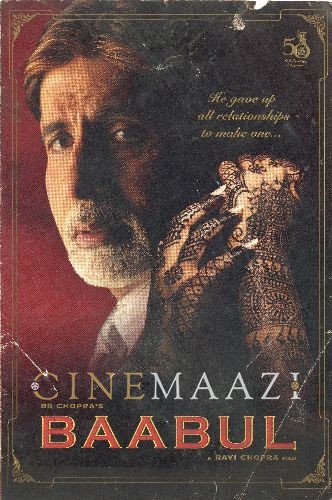
Baabul 2006
-
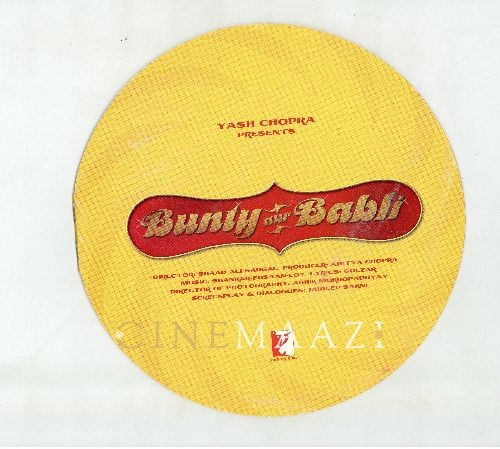
Bunty Aur Babli 2005
-
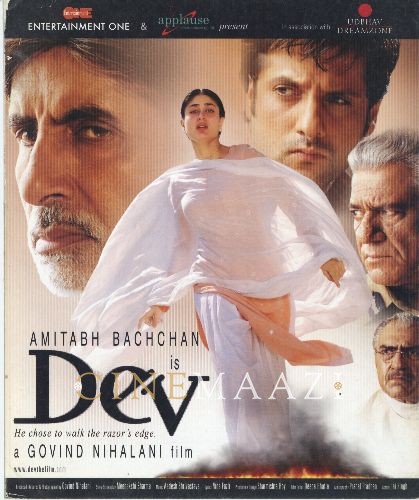
Dev 2004
-
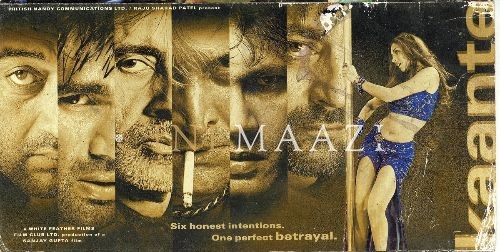
Kaante 2002
-
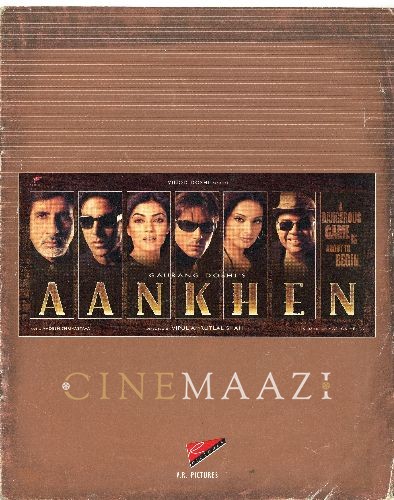
Aankhen 2002
-
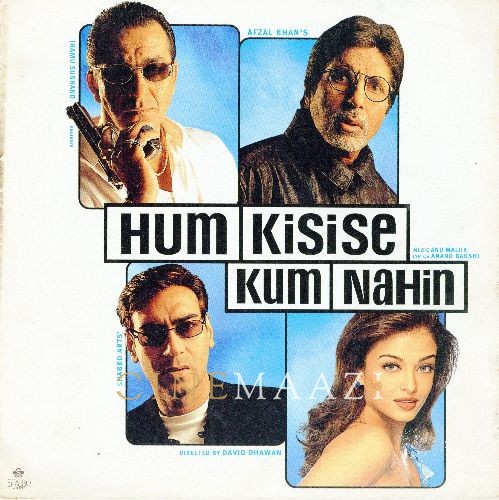
Hum Kisise Kum Nahin 2002
-
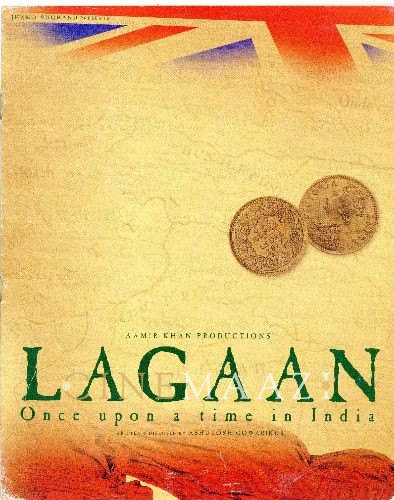
Lagaan 2001
-

Mohabbatein 2000
-
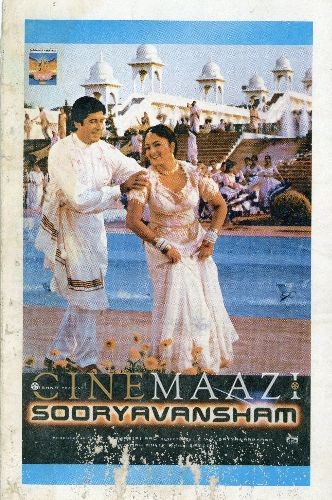
Sooryavansham 1999
-
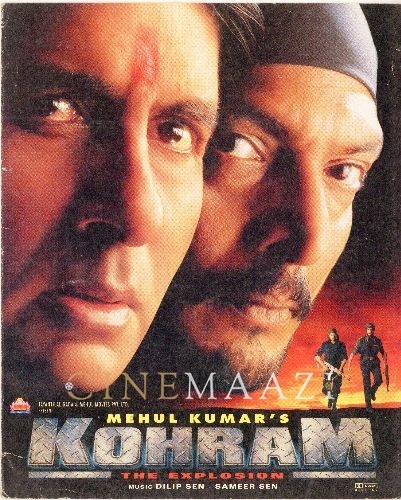
Kohram 1999






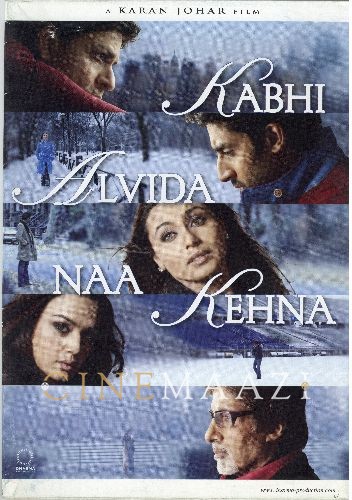
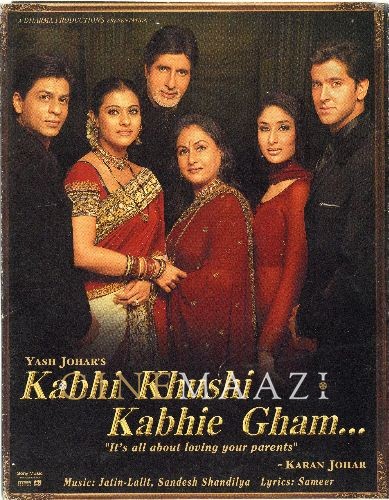


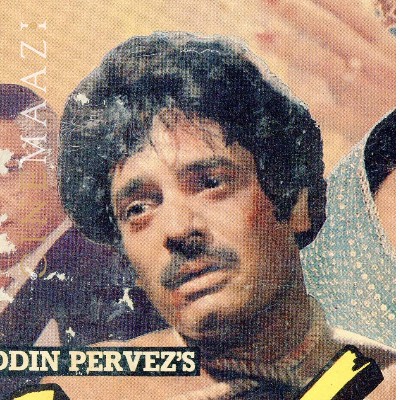

.jpg)



